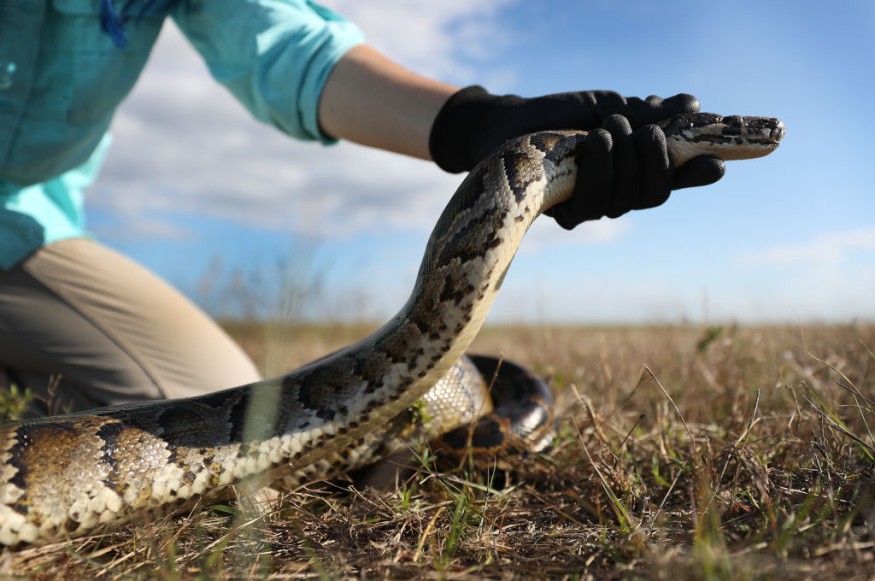
A menagerie of exotic animals was discovered by Spanish police following a tip about a private zoo on the Canary Island of Gran Canaria.
Among the animals recovered in the illegal zoo were two caimans, three pythons, eight iguanas and 46 giant African snails. According to The Guardian, the police started investigating the property after the owner died and found 139 animals. Officers from the Guardia Civil's environmental division, the SEPRONA Patrol of San Mateo, heard reports of "a large collection of non-domestic specimens" in the town of San Bartolomé de Tirajana, and owners of the private estate had recently died, possibly leaving the animals behind.
The authorities recovered the animals, of which 118 were classed as invasive species, and 21 as dangerous.
"Among the seized species are a Ball Python, two Burmese Pythons, a dwarf alligator, 2 bearded dragons, among others," the Guardia Civil said in a statement.
A whole menagerie of exotic creatures
The Nature Protection Service of the Las Palmas Command proceeded to apprehend more than 139 individual creatures from the private estate and were taken to the Crocodile Park, a nearby exotic animal rescue center.
The confiscated animals include two black-headed turtles, 34 crayfish, a leopard gecko, 46 giant African snails, seven snakes, a bullfrog, one long-necked turtle, eight iguanas, one alligator crocodile, two Greek tortoises, a spectacled caiman, 23 red-eared terrapins, 13 blue-tongued skinks, and three African spurred tortoises.
"23 Florida tortoises, thirteen giant blue tongue lisa, three African spurred tortoises, 200 rats, 100 mice and an undetermined number of cockroaches, worms or cricket" were also seized, Euronews reported. Police also seized 200 rats, 100 mice and "an indeterminate number" of cockroaches, worms and crickets.
"One hundred and eighteen of the species recovered have great reproductive capacity and pose a serious problem to the ecosystem," the police said in a statement. "They can also pass on diseases that are dangerous for humans."
Invasive Alien Species (IAS)
The Civil Guard recalled that invasive alien species (IAS) contributed largely to the biodiversity loss around the world.
The Spanish Law 42/2007, of December 13, on Natural Heritage and Biodiversity, defines an IAS as "one that is introduced or established in an ecosystem or natural or semi-natural habitat and that is an agent of change and a threat to biodiversity, whether through invasive behavior of native biological species or because of the risk of genetic contamination."
Generally, invasive species causes ecological or economic harm in a new environment where it is not native, as well as threaten human use of these resources. Introduction of invasive species in an ecosystem reduces biodiversity, limits resources for native organisms, and alters habitats - resulting in huge economic impacts and significant disruptions.
The regulation and monitoring of trade in endangered animals, including the invasive species found and recovered in the private estate converted into zoo is being contemplated by an international agreement namely the Convention on International Trade in Endangered Species of Wild Fauna and Flora (CITES) and in the Spanish catalog of invasive alien species.
Related article : Abandoned Kittens With Cut-Off Limbs Now Found a Forever Home
© 2025 NatureWorldNews.com All rights reserved. Do not reproduce without permission.





